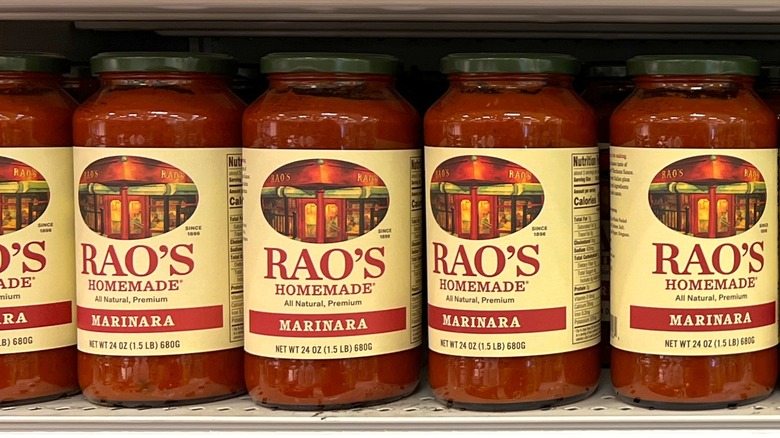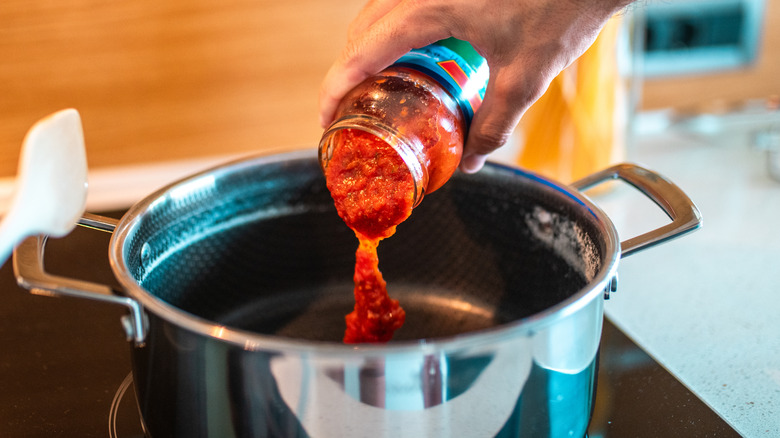How Long Does Marinara Sauce Last In The Fridge?
The convenience of store-bought pasta sauce is unbeatable. From jar to noodles, an Italian-inspired meal is nearly always in reach. For many of us, the jar is just a little too big to use all at once, unless you're cooking for multiple people. And it goes from your pantry, to opening it up and using it, to popping it in the fridge — only for it to sit there for days, weeks, or even months on end. This led us to wonder just how long that marinara will actually last in the fridge.
Once opened, marinara sauce lasts about 5-6 days if it's been refrigerated. Since marinara is a tomato-based sauce, it tends to be highly acidic, which allows it to stay fresh in the fridge for as long as it does — which is similar to how long tomato sauce will last.
I you are reading this while holding a questionable jar of marinara, know that there are plenty of substitutes for this ingredient and that, whenever you're in doubt, it's best to play it safe and toss something. But this pantry staple isn't going anywhere, especially since we know Ina Garten is such a big fan of one particular sauce brand.
How to tell if your marinara sauce is spoiled
Unfortunately, it can be tricky identifying if your marinara is past its prime. The usual sign to look for is mold, but it can be hard to see that in a jar with seasonings that may resemble telltale spores. Once the jar is opened, the sauce is at risk of growing bacteria, even if it's not visible to the eye. Sometimes, pasta sauce may look perfectly fine and fresh but there can be harmful bacteria growing without your knowledge. In this case, your nose is your best friend when determining whether or not to keep or toss. In other words, give it a sniff. Spoiled marinara sauce will likely have a sour, pungent smell.
While you may only have 5-6 days to use your sauce, there are a few things you can do to help preserve its freshness. Immediately after using, seal the jar and place it in the back of the fridge, where your appliance will keep things at their coldest. While you're at it, ensure your fridge is set to 40 degrees F or lower. Ensuring leftover jarred sauce heads right to the fridge will help reduce the chances of premature bacteria growth, so don't let it linger on the counter, either.

